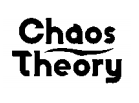| 8:30 am |
Registration opens |
| 9:15 am |
Welcome from G4C APAC and ACMI |
| 9:30 am |
Keynote: Sustainability
Dr Ben Abraham, Sustainable Games Alliance
Ben Abraham, research and standard lead for the Sustainable Games Alliance and author of ‘Digital Games After Climate Change’, presents the launch of Version 1.0 of the SGA Standard – the first game industry-specific greenhouse gas emissions standard designed to accelerate climate action. As founder of AfterClimate, which reports on annual game industry emissions, and creator of the Greening the Games Industry newsletter, Abraham brings deep expertise to this critical environmental challenge. His presentation will provide an introduction and overview of this groundbreaking standard, explaining what it offers the industry that hasn’t existed before and demonstrating why developers, publishers, and stakeholders should adopt it to meaningfully address gaming’s environmental impact.
|
| 10:00 am |
Session 1: Behavioural Change
How games motivate real-world action and ethical decision-making, transforming entertainment into powerful tools for environmental activism, social responsibility, and sustainable lifestyle choices.
|
Prof Gillian Vesty, RMIT University
The Foodbank Game is fun and engaging 10-level game developed with Foodbank Victoria management where players collect donations and healthy food while improving brand image. Each level challenges players with decisions that impact points earned, teaching about the complexities of managing a charity organisation that provides essential food to vulnerable communities. The game demonstrates how players can learn about responsible leadership while supporting Foodbank Victoria’s mission to engage stakeholders and promote their cause.
|
|
Richard Salter, Hojo Studio
BraveCart is a story-driven puzzle adventure following a loyal but abandoned shopping trolley who defies two empires and sparks a revolution. This satirical game about duopoly, consumerism and waste works as both entertainment and a tool for change, highlighting society’s obsession with disposability. Featuring a “Trolley Tracker” that lets players report real abandoned trolleys and donating 10% of sales to environmental charities, BraveCart recruits players to take meaningful steps toward helping the natural environment.
|
|
Nico King, Chaos Theory
Crab God is an underwater strategy game where players nurture a colony of Crablings while learning ecosystem management and environmental stewardship. Through partnership with dots.eco, 10% of game revenue supports real conservation efforts including tree planting, ocean cleaning, and reef restoration that players choose through in-game eco rewards. By caring for virtual coral reefs and managing underwater ecosystems, players develop environmental consciousness and conservation behaviours that translate to real-world environmental awareness and action.
|
|
| 11:15 am |
Session 2: Mental Health
Exploring games as therapeutic interventions and wellness tools, addressing diverse mental health needs while advancing our understanding of gaming’s impact on psychological development and wellbeing.
|
Jake Truman, Entropy Interactive
Myndzai is a mobile game imbued with psychological practices from basic mindfulness to polyvagal theory and narrative therapy, designed to make understanding mental health engaging. Currently in development with Screen NSW support, this innovative approach strikes a balance between digital nutrition and modern game design. The presentation explores creating commercially viable games that genuinely benefit users’ mental wellbeing through interactive psychological interventions and research insights.
|
|
Dr Michelle Chen, Mental Jam
Bobarista is a cozy bubble tea shop game co-designed with people with lived mental health experience, specifically serving underserved demographics with complicated diagnoses and neurodivergence. Players build trust with relatable characters while accessing evidence-based mini games for mental health relief at their own pace. Featuring a spoon system based on chronic illness theory, this approach gives players complete autonomy to find helpful therapeutic tools within heartfelt narrative gameplay.
|
|
Dr Vasileios Stavropoulos, RMIT University
Games, Attention, and the Developing Brain: Longitudinal research following 11,000+ US children exploring how different gaming patterns relate to attention, social behaviour, and brain development over time. Using advanced research methods, this study identifies multiple pathways where gaming may improve focus and cooperation, alongside profiles where risks concentrate. The presentation invites designers, educators, and policymakers to interpret findings and co-create actionable guidance for supporting young people’s mental health through thoughtful game design.
|
|
| 12:30 pm |
Lunch Break |
| 1:45 pm |
Session 3: Education and Training
Revolutionising learning through immersive experiences that make complex concepts accessible, engaging students in ways traditional education cannot while building both technical and social skills.
|
Dr Spyros Schismenos, RMIT University
Empathy is the world’s first video game in Humanitarian Engineering, designed to teach empathy, community engagement and human-centred design while introducing engineering fundamentals in an accessible way. Players take on the role of an early-career engineer working with diverse communities to protect people from flooding. Blending storytelling, interactive dialogues, puzzles and reflective decision-making, this educational experience demonstrates how technical and social learning can be enhanced through collaborative problem-solving scenarios.
|
|
Graham Hannah, UNSW
Diving into Immersive Education, this showcase of bespoke simulations and VR experiences developed to solve real educational challenges across university courses. The presentation explores how immersive technologies engage students through diverse applications ranging from avatar conversations and crime scene investigations to eye simulations and game-like learning experiences. This comprehensive look at educational innovation demonstrates practical approaches to supporting academics in course delivery while inspiring the next generation of learners through experiential education.
|
|
Garry Westmore, ACMI
ACMI Education Showcase is a comprehensive exploration of ACMI’s Game Lessons program – Australia’s largest library of curriculum-aligned video game lesson plans covering Foundation to Year 12 across all subject areas. Led by School Programs Producer Garry Westmore, this showcase demonstrates how 75+ free lesson plans transform learning through games like Untitled Goose Game, Florence, and Minecraft. From media literacy and historical analysis to character development and interactive storytelling, discover practical classroom applications that position students as active makers, players, and explorers while building teacher confidence in game-based learning.
|
|
| 3:00 pm |
Session 4: Accessibility and Representation
Creating inclusive gaming spaces that authentically serve all players, amplifying marginalised voices and breaking down barriers to ensure games empower rather than exclude diverse communities.
|
Jess Rowlings, University of Melbourne / Next Level Collaboration
Majora’s UnMasked is an exploration of neurodiversity-affirming game design principles that foster authentic collaboration among neurodivergent players without requiring masking. Based on upcoming research, this session examines how to leverage existing accessibility features to honour diverse communication preferences, support varied sensory needs, and empower player choice. The presentation provides practical design implications for creating inclusive gaming communities where neurodivergent individuals can collaborate, connect, and thrive as their authentic selves.
|
|
Neema Iyer, STEMtoto
Gender, Games & Learning in the Global South shares research exploring how digital games create space for girls and young women in the Global South to explore identity, build confidence, and learn new skills. The presentation investigates how play shapes learning and challenges social norms through the development of Kamata, a narrative adventure set on the Swahili coast. This live experiment in empowerment and feminist game design demonstrates how interactive storytelling can address representation gaps while fostering personal agency and collective wellbeing.
|
|
Kasey Gambling, The Honeytrap
The Hotline is a browser-based choose-your-own-adventure game exploring reproductive healthcare through a simulated phone menu experience. Satirizing anti-choice pregnancy helplines while including verbatim interviews from lived experience, this interactive narrative examines how patriarchal medicine impacts people with reproductive health issues. Covering under-discussed topics like hysterectomy, menopause, and gender-affirming healthcare, the game highlights how deeply personal healthcare becomes intensely political, advocating for reproductive autonomy and representation.
|
|
| 4:15 pm |
Keynote: Empathy
Dr Susannah Emery, University of South Australia
Susannah Emery, Game & Narrative Designer and Lecturer at UniSA with a PhD and Chancellor’s Commendation, presents Life (Re)Sounding – a 15-20 minute interactive music album created in Unreal 5 that raises awareness of neurodiversity by putting players into the experiences of neurodivergent people navigating a neurotypical world. Drawing from her own neurodivergent experience and research expertise in games for social change, Emery demonstrates how game design elements including mechanics, environments, and dynamic audio can reveal invisible challenges while celebrating the transformative power of self-discovery and community connection. This empathy-building experience showcases practical approaches to promoting equity, diversity, and inclusion through interactive storytelling.
|
| 4:45 pm |
Closing Remarks
|
| 5:00pm |
Drinks
|




